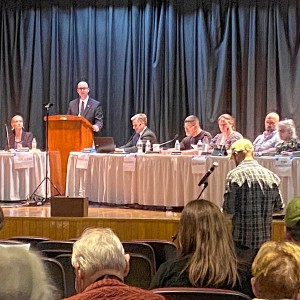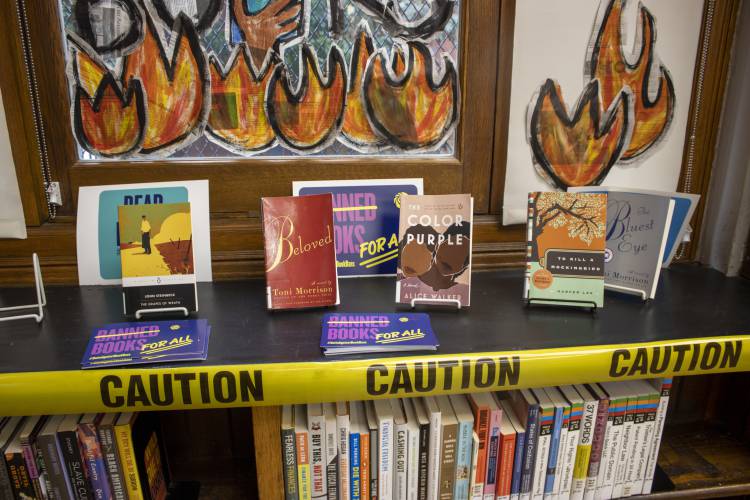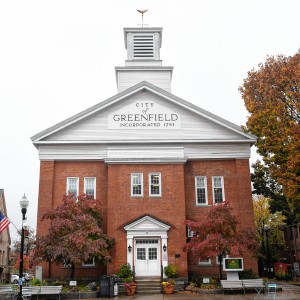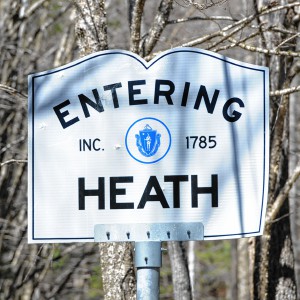My Turn: Fighting back against library book banners
|
Published: 01-12-2024 5:00 PM
Modified: 01-12-2024 8:24 PM |
This is scary. The number of books being banned in school libraries is spiraling upwards. Nationwide, for the 2022-2023 school year, PEN America substantiated 3,362 school book bans that targeted 1,557 unique titles. That’s a 33 percent increase from the previous year.
Massachusetts, unfortunately, is participating fully in this scourge of censorship. In 2022, according to the American Library Association, the commonwealth experienced 45 demands to ban books, covering 57 titles. That’s more challenges to books than had been made in the previous nine years combined.
Most books that are targeted, both nationwide and here, are written by or about members of the LGBTQIA+ community, Black people, Indigenous people, and other people of color. Nationally, the censored book list includes “Gender Queer” by Maia Kobabe, “The Bluest Eye” by Toni Morrison, “The Absolutely True Diary of a Part-Time Indian” by Sherman Alexie, and “This Book Is Gay” by Juno Dawson.
Today right-wing groups, like the misnamed Moms for Liberty, try to orchestrate the removal of hundreds of books at a time. That’s a sea change. It used to be that a parent or guardian would complain about a single title.
Adding to the worry — censors have added weapons to their arsenals. Some new state laws specifically encourage book bans, and others criminalize the distribution of material allegedly harmful to minors. Of course, actual imprisonment isn’t necessary. The chilling effect of those laws will suffice. Educators can’t be expected to risk public ignominy and prison just to put a book on the shelf.
Consider what happened in Berkshire County.
In December 2023, after a complaint was made about the book “Gender Queer” allegedly being in a classroom, a police officer was dispatched to interrogate an eighth-grade teacher. After the teacher truthfully responded that she didn’t know the book’s whereabouts, the officer threatened that he “could go through every room in the school to find it and ask every teacher,” and intimated further that the district attorney had opened an investigation.
A public outcry followed. Monument Mountain Regional High School students staged a walk-out. The DA ultimately announced that under Massachusetts law clearly no crime was committed and therefore no investigation was warranted. The superintendent and school committee chairperson issued a statement expressing regret as to how the situation was handled and opposing book banning. And the police chief pretty much apologized.
Article continues after...
Yesterday's Most Read Articles
 Political newcomer defeats Shores Ness for Deerfield Selectboard seat
Political newcomer defeats Shores Ness for Deerfield Selectboard seat
 South County Senior Center opts not to renew church lease after rift over LGBTQ program
South County Senior Center opts not to renew church lease after rift over LGBTQ program
 More than 130 arrested at pro-Palestinian protest at UMass
More than 130 arrested at pro-Palestinian protest at UMass
 As I See It: Between Israel and Palestine: Which side should we be on, and why?
As I See It: Between Israel and Palestine: Which side should we be on, and why?
 Moratoriums on large-scale solar, battery storage passed in Northfield
Moratoriums on large-scale solar, battery storage passed in Northfield
 Bridge of Flowers in Shelburne Falls to open on plant sale day, May 11
Bridge of Flowers in Shelburne Falls to open on plant sale day, May 11
Which was the right thing to do. Most schools have a policy for challenging books on shelves. Cops interrogating teachers and searching classrooms is not part of the protocol.
So, all’s well that ends, more or less, well?
For sure, the situation could have played out much differently — and worse. Still, think about how fearful and vulnerable the students and educators in that school system now must feel, particularly members of marginalized communities.
There’s more. In 2023, the Ludlow School Committee seriously considered instituting a policy that would have established vague, overbroad and repressive standards for what material could be included in school libraries. Under that proposal, a teacher or librarian who got it wrong would be subject to discipline, up to and including being fired. Fortunately, after intense pushback, the school committee said no.
And still more. In October in Abington, school officials removed “This Boy is Gay” from the middle/high school library. The complaining parent then provided a list of 23 other titles she considered problematic although she admitted she had not read any of the books.
But there’s hope. Pending in the Massachusetts Legislature is a bill proposed by Julian Cyr from Cape Cod and the Islands and co-sponsored by Sen. Jo Comerford, D-Northampton, that will protect against book banning. That Act Regarding Free Expression had a hearing before the Joint House and Senate Committee on Education this past Wednesday. Here’s what the bill provides:
First, when it comes to selecting material for a school library, the librarian or the educator who acts as the librarian must make selections based on their professional training. It forbids selection based on political or personal views.
After a book is included in the collection if someone complains, the book remains available while the challenge proceeds before the School Committee.
The School Committee, in reviewing the challenge, must consider the recommendation of a review committee comprised of school personnel and the superintendent.
The guideposts for reaching a decision are that the complained-about book should not be banned unless the school committee finds (1) by clear and convincing evidence that (2) the material, taken as a whole, (3) is devoid of any educational, literary, artistic or social value or is not age appropriate for children at the school. In sum, students’ right to read and to learn comes first. (Another provision in the bill protects public libraries by adopting the American Library Association’s Bill of Rights.)
In this time when democracy faces grave peril, we need to resist anti-democratic forces and censorship. “An Act Regarding Free Expression” will do that. It will stand as a bulwark for freedom. The Massachusetts Legislature should enact this law — and soon, before more damage is done. The time to contact your state elected officials is now.
Bill Newman, a Northampton-based attorney and co-host of Talk the Talk on WHMP, writes a monthly column.



 My Turn: Stop taking all equity in home seizures now
My Turn: Stop taking all equity in home seizures now Robert McGahan: Will Emmet selflessly gives time and energy to town
Robert McGahan: Will Emmet selflessly gives time and energy to town Pam Roberts: Come join Buddy Baseball's new season on May 11!
Pam Roberts: Come join Buddy Baseball's new season on May 11! Bill and Jean Gran: Heath Select Board needs Mike Smith’s broad experience
Bill and Jean Gran: Heath Select Board needs Mike Smith’s broad experience
